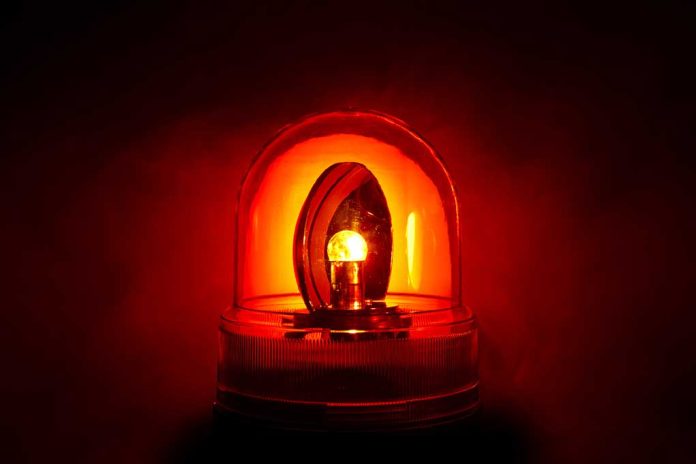
A Black Sea oil spill has prompted Russia to declare an emergency in Crimea, raising alarm over environmental vulnerabilities.
At a Glance
- Regional state of emergency declared in Crimea due to oil spill.
- The spill resulted from storm-damaged tankers in the Kerch Strait.
- Heavy fuel oil complicates cleanup efforts involving thousands of people.
- Environmental collapse signals weaknesses in existing safety regulations.
A Serious Spill in the Black Sea
Russia declared a regional state of emergency in Crimea after an oil spill occurred in the Black Sea in December. The spill catalyzed by aging tankers battered by a storm in the Kerch Strait, resulted in one vessel sinking and the other grounding. The disaster has released approximately 2,400 metric tons of oil products into the seas, affecting crucial habitats and nearby fisheries.
The urgency of the situation has catalyzed the deployment of over 10,000 people engaged in cleanup efforts, particularly focusing on the Anapa region, a popular summer resort area. With heavy M100-grade fuel oil involved, which solidifies at relatively warm temperatures and does not float, the challenge of removing the pollution becomes significantly more complex.
Russia declared a regional state of emergency in Crimea, as workers cleared tons of contaminated sand on either side of the Kerch Strait following an oil spill in the Black Sea https://t.co/1HPbw3wMA5 pic.twitter.com/G11wVr10Zb
— Reuters (@Reuters) January 5, 2025
Environmental Impact and Cleanup
This environmental catastrophe has prompted calls for stringent environmental oversight as over 96,000 tons of contaminated sand and soil have already been purified. Yet, as the oil reaches the shores of Sevastopol, the ecological repercussions are stark, with reports noting the deaths of dolphins, porpoises, and sea birds due to the spill. In response, and as a measure of accountability, Ukrainian officials have pushed for sanctions targeting Russian tankers.
“Russia declared a regional state of emergency on Saturday in Crimea, which it seized from Ukraine in 2014, as workers cleared tons of contaminated sand and earth on either side of the Kerch Strait following an oil spill in the Black Sea last month.” – Mikhail Razvozhaev
The Delfa Dolphin Rescue and Research Center confirmed that numerous cetaceans have perished, most belonging to the endangered Azov species. Significant discussions are now underway regarding the effectiveness of prevailing security regulations and whether they are robust enough to prevent future disasters.
Russia-appointed officials in Crimea declare emergency; oil spill reaches Sevastopolhttps://t.co/8aYW9WBttZ
— Voice of America (@VOANews) January 5, 2025
A Global Route of Conflict
The Kerch Strait, a pivotal global shipping route, amplifies the stakes of this ecological disaster. Situated between Russia’s Krasnodar region and Crimea, the area has historically been a flashpoint between Russia and Ukraine. This latest incident surfaces not only as an environmental emergency but also as a geopolitical tension park, as indicated by President Vladimir Putin referring to it as an “ecological disaster.” Reports of oil-tainted soil being collected from the broader Kuban region further highlight the impact’s enduring geographic reach.
This spill illuminates the broader risks at play in areas of extensive fossil fuel exploitation, advocating for revisiting safety protocols and ensuring more robust preparations when warming a region marred with grievous competition around resource control.
Sources
1. Russia clears beaches after Black Sea oil spill, declares emergency in Crimea
2. More than 30 dolphins have died since an oil spill near southern Russia, experts say




